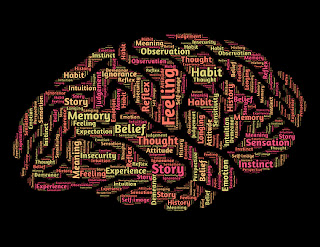I was recently a guest on the podcast Awe-Inspired and Retired. We talked about all things retirement, from where we're going to live, to what we're going to do, to who we're going to do it with . . . or what we called the "three likes" of retirement.
(You can now listen to both of the podcasts I've done using the links under "Retirement Podcasts" on the right hand side of the blog.)
Anyway, toward the end of the conversation, hosts Caleb Miller and Riley Anderson brought up the subject of "tribes." Apparently, some of their previous guests, talking about retirement, suggested that, after we're done working and raising a family, we have to find a new place in life, find what they call a new tribe.
Okay, that sounds reasonable.
Or maybe retirees have more than one tribe. Actually, we all probably have different tribes in our lives -- with different people for different reasons. In my own case, I have my golf group, and my senior learning colleagues, and my "old friends" from back home. My wife and I have our couple friends. And we have, basically, two families (hers and mine, since we're both second spouses).
And then the hosts asked me, What's the tribe that everyone wants to be a part of? You know, the group where people are saying, "Yeah, I want to be in that tribe. I want to be with these kinds of people."
The presumption is, maybe we feel left out of some group -- some group we think is cool -- that seems to enjoy a life that's easier, or richer, or somehow better. Maybe it's some special lunch group, or maybe the elders at church, or the crowd at the theater, or the board of the condo association. Or maybe we envy friends who retired to Florida or Arizona, or even abroad, because they are more adventurous than we are.
So, they asked me, is there a tribe where you say, "Gee, I wish I could join that group."The question made me chuckle. Because my answer is a definite: "No."
The reason is, when I was a kid, through high school and beyond, all I wanted to do was be cool . . . be in the cool crowd. But in reality, as I've discovered over the years, the last thing you want to do is be cool. You don't want to be part of the tribe that everyone else wants to join. Instead, you want to be in your own tribe. People who you like, who do the weird things that you like to do, who accept you for who you are.
And you do not want to be envious of some other cool people who may be richer than you, or more intellectual, or more artsy, or more sporty or more adventurous -- whether they're in town, or in church, or at the senior center, or living somewhere else. You just don't want to get into that.
I am very anti-cool. And if you don't believe me, just ask my kids.
.jpg)

.JPG)
.jpg)







.JPG)


.JPG)


.JPG)
.JPG)
.JPG)
.JPG)
.JPG)

.JPG)
.JPG)